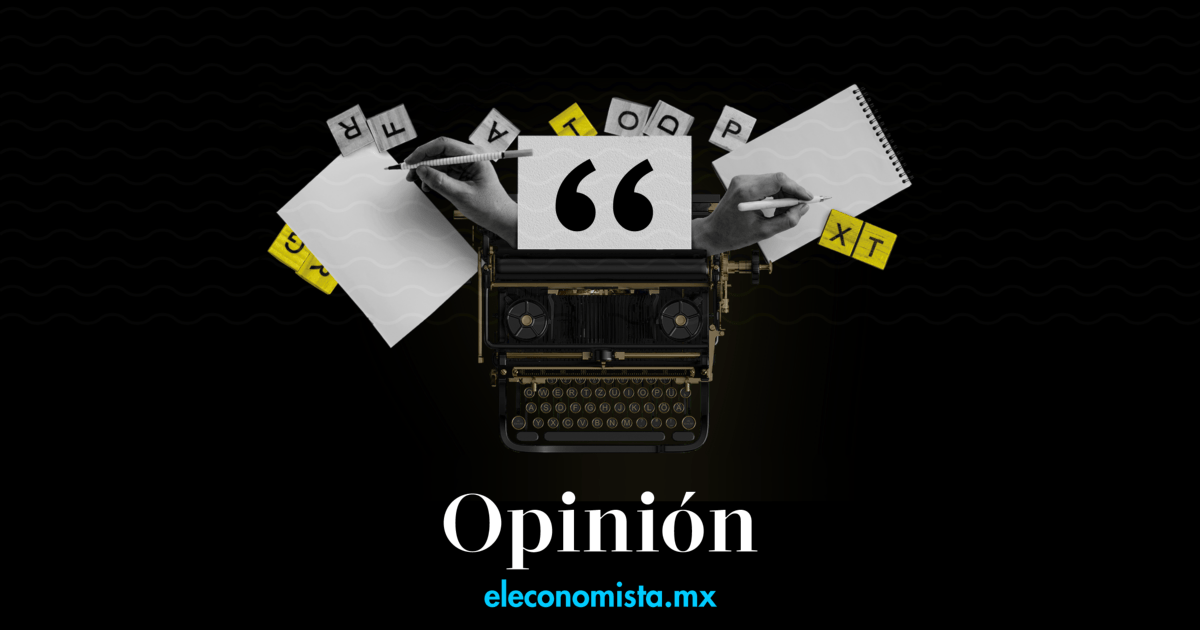2023 began with good news for the markets: inflation in the United States dropped to 6.5%, which was estimated by investment funds and banks, the reopening of the Chinese economy was announced earlier than expected, and a warmer winter than normal in a Europe – which has a great dependence on Russian hydrocarbons – has also helped a lot.
Despite this optimism, the World Bank has cut its growth forecasts for most countries and regions (1.5-2%, is the consensus), and has warned of further headwinds in 2023 that could trigger a global recession.
Here is a brief list of different trends for the coming year: The inefficiency and side effects of COVID vaccines will gradually come to light; Regulators will begin to take more drastic measures with technology companies -and the handling they give to our data- such as the “Tik Tok” case, the regulatory burden will also increase the intermediaries of “digital assets” such as crypto exchanges; The fall of cryptocurrencies will continue (many will disappear) and a few will survive with clear “use cases”; Energy -in general- will remain expensive; Google will face strong competition in its flagship service (search engine); Cohesion in the European Union will be put to the test (each individual economy faces very specific challenges); China will maintain an aggressive stance with Taiwan but will not invade it; Artificial Intelligence will break into many sectors; The War between Russia and Ukraine will not end this year, but Putin will lose internal and external support; The work culture will continue its path towards “flexibility”; The tension will grow between individuals and authoritarian governments (Russia, China, Iran mainly); Interest rates will peak in 2023; Inflation will start to decline (but remain above target) this year; Much manufacturing will move away from China to relocate to other countries (such as Mexico); The use of clean energy will continue to advance -as well as the sale of electric vehicles of all brands-; The Fintech ecosystem will continue to challenge the “status quo” of the big banks, but many will fail, those that diversify their income will survive and become stronger.
Other trends of interest:
Yes there will be a global recession: The biggest banks on Wall Street agree that the Federal Reserve’s interest rate hike cycle will continue this year. Jerome Powell is aware that the risks of making a mistake are high, but considers that “the greatest danger is not doing enough rather than doing too much”, and this confirms his resolve. Will the Federal Reserve continue to tighten monetary policy in the midst of a recession? The answer is yes.
Then, interest rates will continue to rise, albeit at a slower pace. In Europe, the reference rate could reach 3%, in the United States, for its part, it would move between 4.75 and 5.25%; and in Mexico there would be two-digit rates, of the order of 11-12%.
A recent survey of economists conducted by Bloomberg indicates that the consensus is that in the next 12 months there will be a global recession. There are no financial oracles, but the closest thing to this are commercial banks. Its tentacles touch so many aspects of the economy—from consumer spending through credit cards to business health through business lending—that it’s very revealing to watch its behavior.
The banks are suffering. Goldman Sachs just launched its biggest cost-cutting efforts since the 2008 financial crisis, laying off 3,200 employees (or 6.5% of its entire workforce) last week. And it’s not the only one cutting staff: Morgan Stanley and Citi are among the other global banks that have cut their workforces recently due to the slowdown. Overall, big bank profits are expected to have fallen 15% this fourth quarter from a year earlier (high interest rates notwithstanding).
On US stocks, returns will be flat at best. Safe haven assets like the US dollar, Japanese yen, gold, silver, long-term government bonds and private equity as well as “alternative investments” like art (see Masterworks) will rise. A case can also be made for outperformance in markets outside the United States in 2023, especially emerging commodity-exporting economies, especially China, it is worth noting that the Hang Seng Index is at year 2000 (very cheap compared to the indices in the United States).
Russia: “Vladimir Putin’s war is turning Russia into a failed state, with uncontrolled borders, the formation of private armies, a population on the run, moral decay and the possibility of civil conflict.” It was recently read in a tweet from the prestigious magazine “The Economist”. In 2023 Russia will continue to suffer the effects of the rapidly changing European dependence on Russian oil and the effect of economic sanctions. The income from this product had been used to maintain internal cohesion. In the short term, Putin will continue to lose the war against Ukraine, but the end of the conflict is not in sight for this year. In the medium term and with these revenues severely depleted and gradually declining, Russia could become a confederation or even break up into secessionist parts by 2030. What will happen to its nuclear weapons in this scenario? That’s the million dollar question.
China: As China’s competitiveness in the export market continues to decline in the near term, high unemployment will become a major challenge for the regime. The government will try to survive the downward spiral of the economy by tightening its grip on power, propping up the dictatorship that exists there. In the face of mounting year-end protests, the Chinese government abandoned its zero-COVID policy with no apparent plan “B”. Official data is scarce and unreliable. At the same time, the United States intensifies its trade war with China. In the near term, the outcome is likely to be a fragile – but above average – economic recovery for China in 2023. Persistent weakness in the real estate sector has outweighed positive momentums in other economic areas, and fears of a financial crisis weigh heavily. on the stock indices of that country. In the medium term, China will not be the engine of growth that it has been in the past. Apart from cyclical factors, the process of control of the country from the center is incompatible with prosperity. The resulting rise of regionalism will create regions that are rich and others that are not (this has been the case), provoking the discontent of civil society with movements that will gradually weaken the central power. Against this backdrop, Japan will emerge as the new regional power by 2030. Its economic strength, military capabilities, social cohesion, and recent turnaround and highly likely geopolitical alliance with the United States (and Taiwan) will make Japan the country most likely to fill the gap. void left by China.
Telemedicine: Americans spend $3.8 trillion a year on health care. That’s more than 17% of gross domestic product. The United States is trying to control costs using technology. Telemedicine must be a big part of the answer to that problem. In this sense, there will be many winners. But the Teladoc (TDOC) case stands out, with an initial advantage and an infrastructure that complies with strict regulations that gives it a great advantage over new entrants. The pandemic forced many to embrace telemedicine. What was once a potential market is now a very real market. Teladoc today has relationships with almost half of the Fortune 500 companies, and this trend will only gain strength in the coming year and in the medium and long term.
regenerative medicine: Thanks to a growing ability to analyze and manipulate genetics, as well as the development of artificial intelligence, more and more technology companies are entering the “longevity” market. Venture capital funds such as Apollo Health Ventures, and Life Extension have recently raised a large amount of funds to invest in companies dedicated to modifying cellular processes, regenerating body parts, and discovering anti-aging drugs and supplements.One startup that has attracted attention is Altos Labs.It is backed by Jeff Bezos (founder of Amazon), and with Nobel laureate Jennifer Doudna as its director, it is worth mentioning that it closed a mammoth $3 trillion financing deal in early 2022. Its stated goal is to “reverse the disease,” through what it calls “cellular programming of rejuvenation”, which consists of modifying cellular processes to interrupt the mechanisms associated with the aging.
Ecosistema fintech: Fintech’s source of income will be vulnerable during a period of recession. The fintechs that survive the crisis will move towards the creation of “ecosystems” to diversify their earnings and where users can manage their money, buy, insure, invest and more etceteras. For example, the case of the English Revolut stands out, it has built an ecosystem of around 50 products, which include salary advance, pet insurance, or business payroll, among others. Another example is Brazil’s Nubank (Nu), which has bought startups to expand into insurance, investment, cryptocurrency, commerce, and more. Today, your active customers use more than 3 different products -on average-. The ones that will survive will be those that find strategies to focus on more stable and secure sources of income, either by developing new products to sell to their customer base, or by building entirely new lines of business.
personal robotics: Tech leaders as well as start-ups are exploring how robots can function safely in the home, both as cleaning aids (iRobot, for example) and other uses. Recently, Amazon, Google, and Dyson have made notable strides in the personal robotics space. This is indicative of the birth of a trend that will transform the home and place robots at the center of the daily lives of individuals. The opportunity is huge, the market for robots for personal use is estimated to be worth $22 billion USD…
(Will continue)
Twitter: @EduardoTurrentM
hartford car insurance shop car insurance best car insurance quotes best online car insurance get auto insurance quotes auto insurance quotes most affordable car insurance car insurance providers car insurance best deals best insurance quotes get car insurance online best comprehensive car insurance best cheap auto insurance auto policy switching car insurance car insurance quotes auto insurance best affordable car insurance online auto insurance quotes az auto insurance commercial auto insurance instant car insurance buy car insurance online best auto insurance companies best car insurance policy best auto insurance vehicle insurance quotes aaa insurance quote auto and home insurance quotes car insurance search best and cheapest car insurance best price car insurance best vehicle insurance aaa car insurance quote find cheap car insurance new car insurance quote auto insurance companies get car insurance quotes best cheap car insurance car insurance policy online new car insurance policy get car insurance car insurance company best cheap insurance car insurance online quote car insurance finder comprehensive insurance quote car insurance quotes near me get insurance









